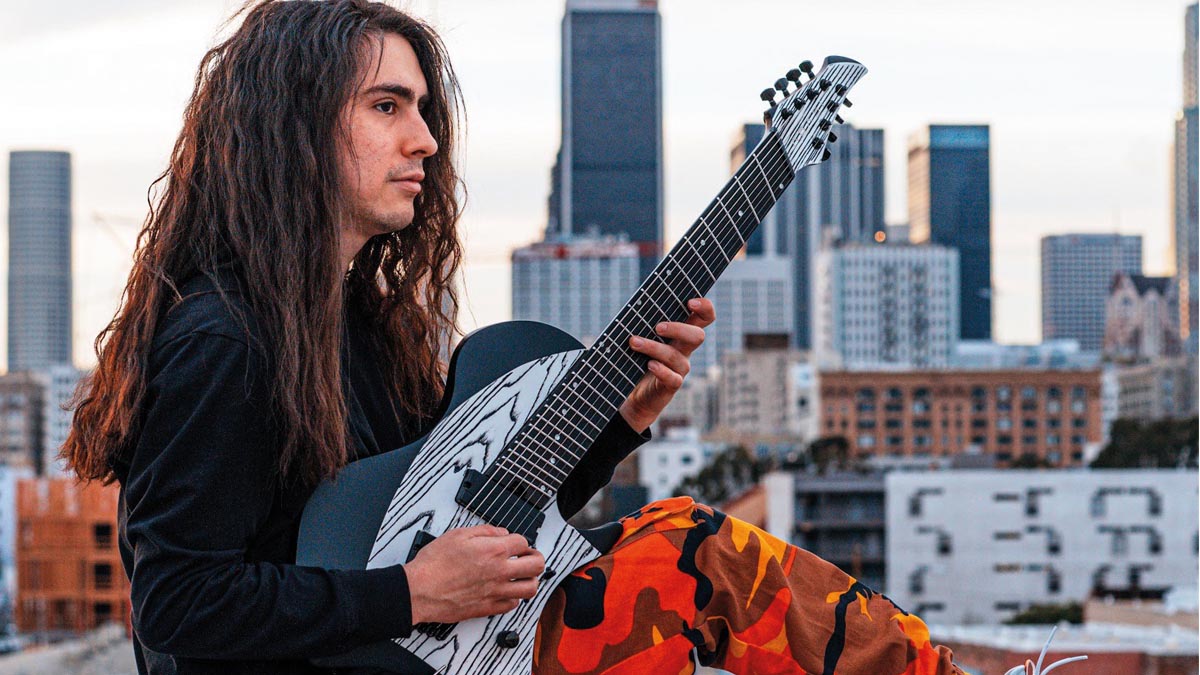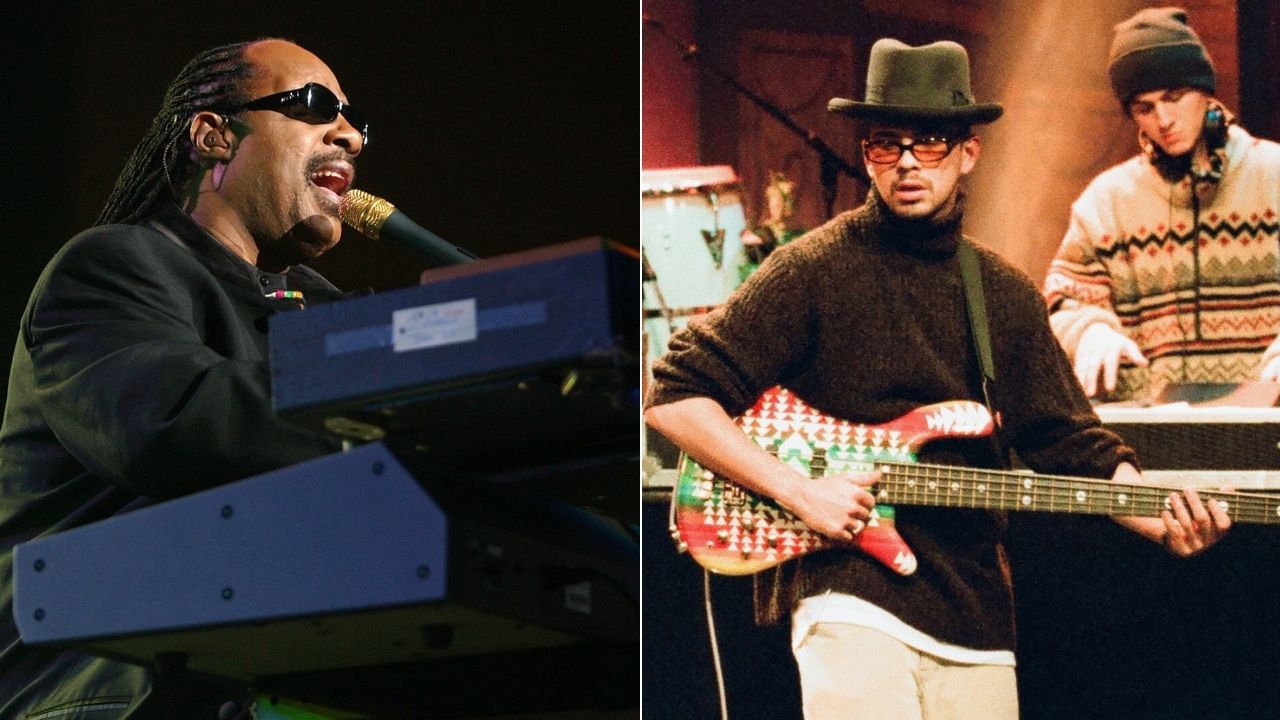Hedras Ramos: “Some players look at fast playing as the goal, but the goal should always be great timing“
The L.A. instrumental mastermind on what makes a good player and the systematic chaos of his new record, Pagans

“I look at playing fast as fractions of rhythm,” says Hedras Ramos when asked about the burst-picking passages in Pagans, the title track from his new album.
The LA-based Guatemala-born multi-instrumentalist is capable of blasting at warp speeds – though, as he explains, it’s only possible because he spent time dividing each count of the metronome in every way.
“Some players look at fast playing as the goal, but that shouldn’t be the case... the goal should always be great timing,” he continues. “If you get that down, playing fast will come naturally. You need to control time and remember that speed is just part of the spectrum.
“People who are able to play 16th or 32nd notes at high speeds are only able to do it because they know exactly what is required from all the brain and muscle memory. That’s how I look at fast playing; it’s just one aspect of having good timing.”
The guitarist also recently uploaded his own version of Dream Theater’s Another Day solo, though instead of playing it note for note – which, to be fair, many would find challenging in itself – he chose to compose lines more ambitious than what’s heard on the original recording.
“Originally I thought I’d learn the solo over quarantine while everything was closed, as there wasn’t much to do,” Ramos says.
“I downloaded the backing track and started jamming to it, coming up with ideas I felt were cool. As you can tell, I had a lot of fun! John Petrucci was one of the main guys for me growing up – though interestingly I didn’t discover him through Dream Theater.
All the latest guitar news, interviews, lessons, reviews, deals and more, direct to your inbox!
“I actually first saw him on G3: Live in Tokyo. I think you can definitely hear some of his influence on Pagans because the main verse uses counterpoints almost like Chopin, where two guitar parts work together in harmonic minor tonalities.”
The blend of heavy metal, classical and fusion influences is what led to the otherworldly combo of sounds heard on Pagans.
“I love that classical feel,” he concludes. “And then for the solo, I wanted to incorporate more of a diminished sound – but not in the typical three-fret repeat kind of way. Instead, I was trying to write less common lines within the scale, which is something I learned from fusion legends like John Scofield and Guthrie Govan.”
- Hedras Ramos' new album, Pagans, is out now.
Amit has been writing for titles like Total Guitar, MusicRadar and Guitar World for over a decade and counts Richie Kotzen, Guthrie Govan and Jeff Beck among his primary influences as a guitar player. He's worked for magazines like Kerrang!, Metal Hammer, Classic Rock, Prog, Record Collector, Planet Rock, Rhythm and Bass Player, as well as newspapers like Metro and The Independent, interviewing everyone from Ozzy Osbourne and Lemmy to Slash and Jimmy Page, and once even traded solos with a member of Slayer on a track released internationally. As a session guitarist, he's played alongside members of Judas Priest and Uriah Heep in London ensemble Metalworks, as well as handled lead guitars for legends like Glen Matlock (Sex Pistols, The Faces) and Stu Hamm (Steve Vai, Joe Satriani, G3).



